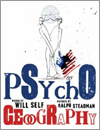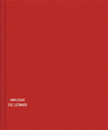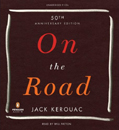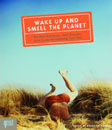Book Digest: January 7, 2008
This new political moment, featuring candidates who are not angry, mean-spirited hacks spewing fear and loathing (Although Mitt Romney’s “Marching Forward into the Future” speech is its own brand of totalitarian gibberish) brings to mind an observation that I came across by Friedrich Nietzsche in Don Lee’s excellent and amusing new novel Wrack + Ruin: To predict the behavior of ordinary people, you only had to assume that they would try to escape a disagreeable situation with the smallest expenditure of intelligence—which I apply to most of the presidential candidate field, as well as the sorry beltway boobs who make a good living making up irrelevant stories about the campaign.
In any case there is an abundance of good and useful books to read. Some of them are listed below. Good reading, peeps.
Head and Heart: American Christianities by Gary Wills

Pulitzer Prize-winning scholar Wills (Lincoln at Gettysburg), whose Nixon Agonistes was one of the more clear-eyed takes on our deeply flawed 37th president, has lately taken to writing on religion. Although not a God-fearing Bible thumper, Wills is a believer, which does give him a more balanced view with which to account for Christianity’s role in America, historically and currently. His focus is the distinction between the way emotion and reason—as he frames it, Enlightenment and Evangelism—have played out in American society. Not preoccupied with an overbearing fear of the Christian Right (a la Chris Hedges’s American Fascists), Wills nevertheless recognizes the threat the new holy rollers pose to a vibrant and free society.
Psychogeography: Disentangling the Modern Conundrum of Psyche and Place by Will Self and Ralph Steadman

Just as there was no magical realism beyond Gabriel García Márquez, gonzo journalism was a guild of one, namely Dr. Hunter S. Thompson. However, escapades such as being kicked off Tony Blair’s campaign airplane for allegedly snorting heroin does create a rogueish, loose-cannon reputation for novelist Self (The Book of Dave). This volume collects 50 columns Self penned for England’s Independent, with Thompson’s illustrator-collaborator, the esteemed Ralph Steadman, supplying the visuals. Additionally, there is a never-before-published essay in which Self describes a “walk” from Heathrow to New York in search of his American mother.
» Read an excerpt from Psychogeography
Gonzo: The Life of Hunter Thompson by Jann Wenner and Corey Seymour

Johnny Depp, who acted in the film version of Hunter S. Thompson’s Fear and Loathing in Las Vegas, writes in this book’s preface:
Speaking as a fan: You owe it to yourselves to not be cheated, or shortchanged, by believing merely the myth. Read the work. Read his books. Understand that his road and his methods were his and only his. He was, in no way, irresponsible when it came to his writing. He lived it, breathed it—twenty-four hours a day. There are those of you, based on Hunter’s journeys and the mad stories that surround his life and memory, might think that because of his lifestyle, the excess and the wild rantings, he was simply some hedonistic lunatic, or as he always put it, “an elderly dope fiend.” I promise you, he was not. He was a Southern gentleman, all chivalry and charm. He was a hilarious and rascally little boy. A truth seeker. He was a hypersensitive medium who channeled the underlying currents of truth, concealed in veils of silken lies that we have become accustomed to swallowing.
Yes, indeed.
» Read an excerpt from Gonzo
Bamboo: Essays and Criticism by William Boyd

British novelist Boyd (Restless), who won accolades for his last fiction opus, takes the title of this anthology of nonfiction odds and ends from an old Chinese saying: “Plant one bamboo shoot—cut bamboo for the rest of your life.” Collected are Boyd’s writing on literature, Dickens, Vonnegut, art, the movie business, the Cannes Film Festival, television, autobiographical reflections on his African childhood, and the writing life. Andrea Thompson points out:
In an assessment of Anthony Burgess, [Boyd] asserts, “If there is one thing that characterizes the British writer, from the eighteenth century onwards, it is that by and large he or she writes a lot, is very productive, is professional. Writing is both a serious calling and a serious career.” Boyd has certainly taken his own words to heart.
Chatter by Perrin Ireland

The publisher’s description—a “fast-paced, dark comedy about marriage, family, and friends in a terror-obsessed world”—doesn’t ring my bell, but Elizabeth Benedict’s blurb does: “Perrin Ireland’s smart, witty new novel is full of the best kind of surprises. With a light touch and an experienced woman’s wisdom, she explores human frailties, domestic and international crises, the deeply personal, and the darkly political.” As Sven Birkert chimes in: “Smartly plotted and stylishly paced, Perrin Ireland’s Chatter shows us just how the domestic and the political are entangled. The novel is alert with suspicion and heightened surmise; it gives us a bright Doppler reading of the way we live now.”
Yes, blurbs do mean something to me.
» Read an excerpt [pdf] from Chatter
The Song Before It Is Sung by Justin Cartwright

In a chat with William Boyd about 10 years ago, I asked him for the name of a writer whom he thought was underappreciated and under-recognized. He named Justin Cartwright. I finally caught up with Boyd’s tip with this, Cartwright’s latest novel, based on the true events of the July 20, 1944 plot to assassinate Hitler. It is a profoundly compelling rumination on big, sweeping themes, and includes a character based on intellectual historian Isaiah Berlin. The title is taken from a question posed by Berlin’s favorite thinker, Russian philosopher Alexander Herzen: “Where is the song before it is sung?” Berlin answered: “Nowhere.” This enchanting novel tells you why.
Prophet of Innovation: Joseph Schumpeter and Creative Destruction by Thomas K. McCraw

I have a sense, a feeling (with no science to back it up) that economists seem to have an extraordinarily keen knowledge and understanding of social realities. It’s better known that fin de siècle Vienna was a hothouse for intellectual and creative activity. Vienna-born economist Joseph Schumpeter was a champion of the notion of creative destruction, promulgating it as the essential principle of capitalism. In addition to his important scholarly contributions, Schumpeter was a complex and conflicted person whose private story Pulitzer Prize winner McCraw vividly draws out, apparently accessing never-before-used diaries and letters.
» Read an excerpt [pdf] from Prophet of Innovation
Today I Wrote Nothing: The Selected Writings of Daniil Kharms translated by Matvei Yankelevich

Frankly, I had never heard of Russian writer Daniil Kharms, who wrote in the Soviet period and perished in one of that regime’s psychiatric prisons. George Saunders’srecent piece on Kharms, rife with examples of his iconoclasm and clearly articulating his unorthodox sensibility (also making it clear why a writer like Saunders would be drawn to him), changed that. As Saunders suggests:
Kharms’s work is exhilarating, especially in a time when, if Beckett were alive, he might find himself on television leading a panel discussion about “People Who Have Waited Too Long for Someone!” It’s good to be reminded that fiction is more than just a device for transmitting information or learning about reality or dissecting problems. Fiction is about simultaneously outing and satisfying our innate desire for narrative.
» Read an excerpt from Today I Wrote Nothing
Analogue by Zoe Leonard

To quote her publisher, Leonard captures:
…the vanishing face and texture of 20th-century urban life, as seen in the shop windows of mom-and-pop stores. Lacking the glamour of the shopping mall and the digitally manipulated perfection of mail order catalogs, these fading objects tenaciously hold on to their disappearing place on city streets.
In this slim monograph Leonard traces the “globalized rag trade” by following a shipment of discarded clothing from a clearing station in Brooklyn to used clothing markets in Kampala. As the photographer observes, “Progress is always an exchange. We gain something, we give something else up. I’m interested in looking at some of what we are losing.”
» See images from Analogue
On the Road: 50th Anniversary Edition by Jack Kerouac, audiobook read by Will Patton

The 50th anniversary of Kerouac’s magnum opus called forth all sorts of iterations of that landmark work. Whatever your thoughts may be about its literary value, On the Road’s publication signaled a watershed in American culture and brought the Beat generation mainstream recognition. For those of us who can’t or won’t spare the time to reread the novel, this recording is not a bad way to go.
» Listen to an excerpt from On the Road
A Magnificent Catastrophe: The Tumultuous Election of 1800, America’s First Presidential Campaign by Edward Larson

Given that the political season is full flush upon us, Pulitzer winner Larson’s grand account of the first presidential election between John Adams and Thomas Jefferson—which he coined “America’s second revolution”—provides something of a longer view and contrast of our quadrennial political circus. Interestingly, the outcome remained in doubt after Election Day and Congress met in closed session before Inauguration Day to resolve the issue, making for a tense bit of grand opera. In any case it’s a great story—written and put together the way history should be.
» Read an excerpt from A Magnificent Catastrophe
McSweeney’s No. 25

With its embossed cloth cover and small book format, this edition contains the usual design gadgetry McSweeney’s indulges in, as well as stories by known writers Steven Millhauser, Joyce Carol Oates, and Padgett Powell, plus Connor Kirkpatrick, Emily Anderson, David Hollander, Alexander McBride, Kenneth Bonart, Terry Wright, and Chloe Hooper. Neat drawings by Amy Jean Porter and Leah Hayes. As literary magazines go, McSweeney’s is perennially lively and adventurous and fun.
Homecoming by Bernhard Schlink

This new work from German novelist Schlink—who has an international following that includes Oprah (who may be treated as her own nation) for his 1995 novel The Reader—brings his characters across Europe to New York City to deal with those large issues that usually emanate from post-war narratives: identities real and false, families, and notions of redemption.
» Read an excerpt from Homecoming
Flying to America: 45 More Stories by Donald Barthelme, edited by Kim Herzinger

By well-deserved reputation, Barthelme was one of the most influential and inventive writers of the mid- and late-20th century. This is the third and final volume in Herzinger’s project to bring the entirety of his work into print. These 15 stories present all of Barthelme’s previously unpublished and uncollected short fiction, as well as work not published in his two compendium editions, Sixty Stories and Forty Stories, and include three unpublished stories (“Among the Beanwoods,” “Heather,” and “Pandemonium”); 14 stories never before available in book form (from his first published story, “Pages From the Annual Report” in 1959, to his last, “Tickets” in 1989); and the long out-of-print “Sam’s Bar,” with illustrations by Seymour Chwast.
Wake Up and Smell the Planet: The Non-Pompous, Non-Preachy Grist Guide to Greening Your Day edited by Brangien Davis with Katharine Wroth

The Grist people have taken on board the notion that doing the right thing doesn’t entail a humorless scolding approach—the title tells it all. Or as they tell it:
Wake Up and Smell the Planet
This works for us, for sure.
